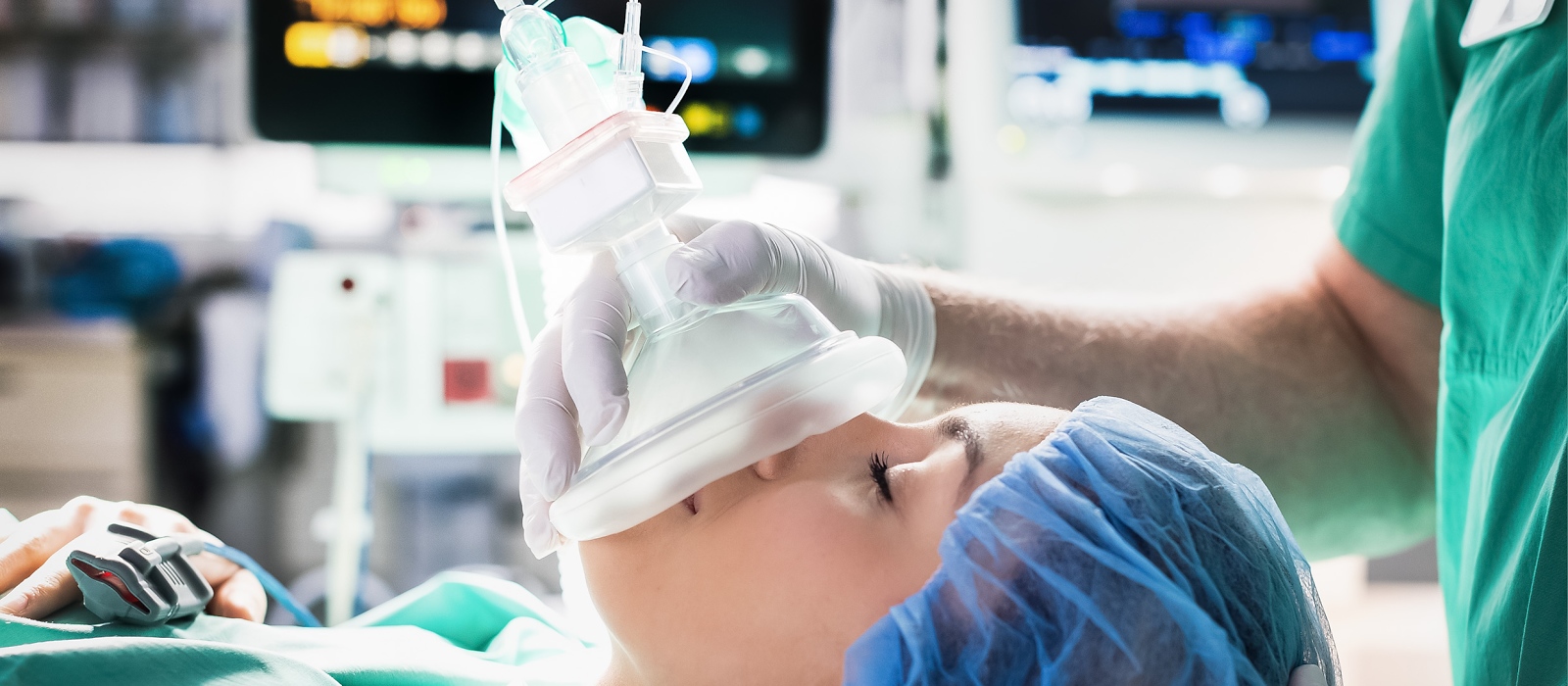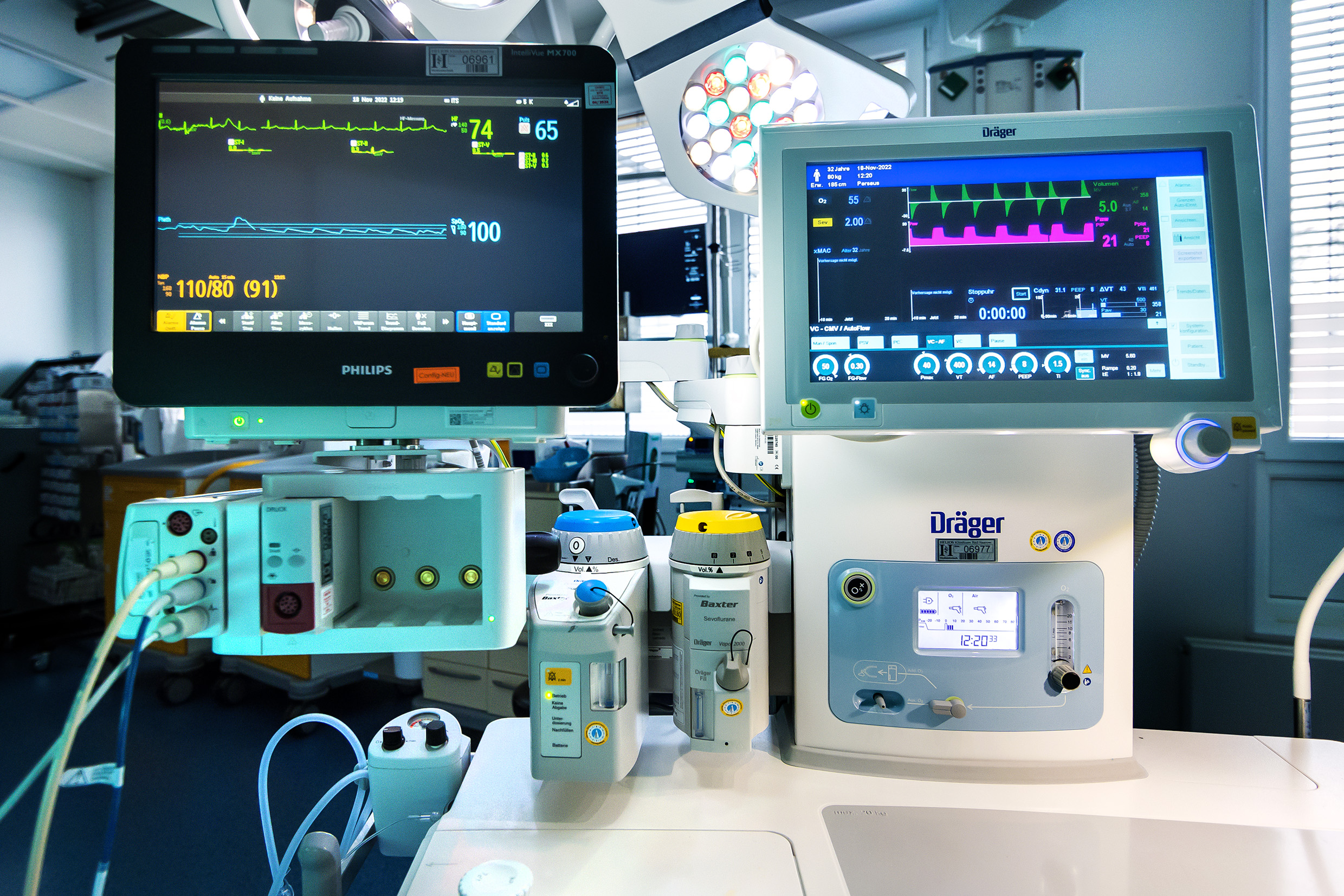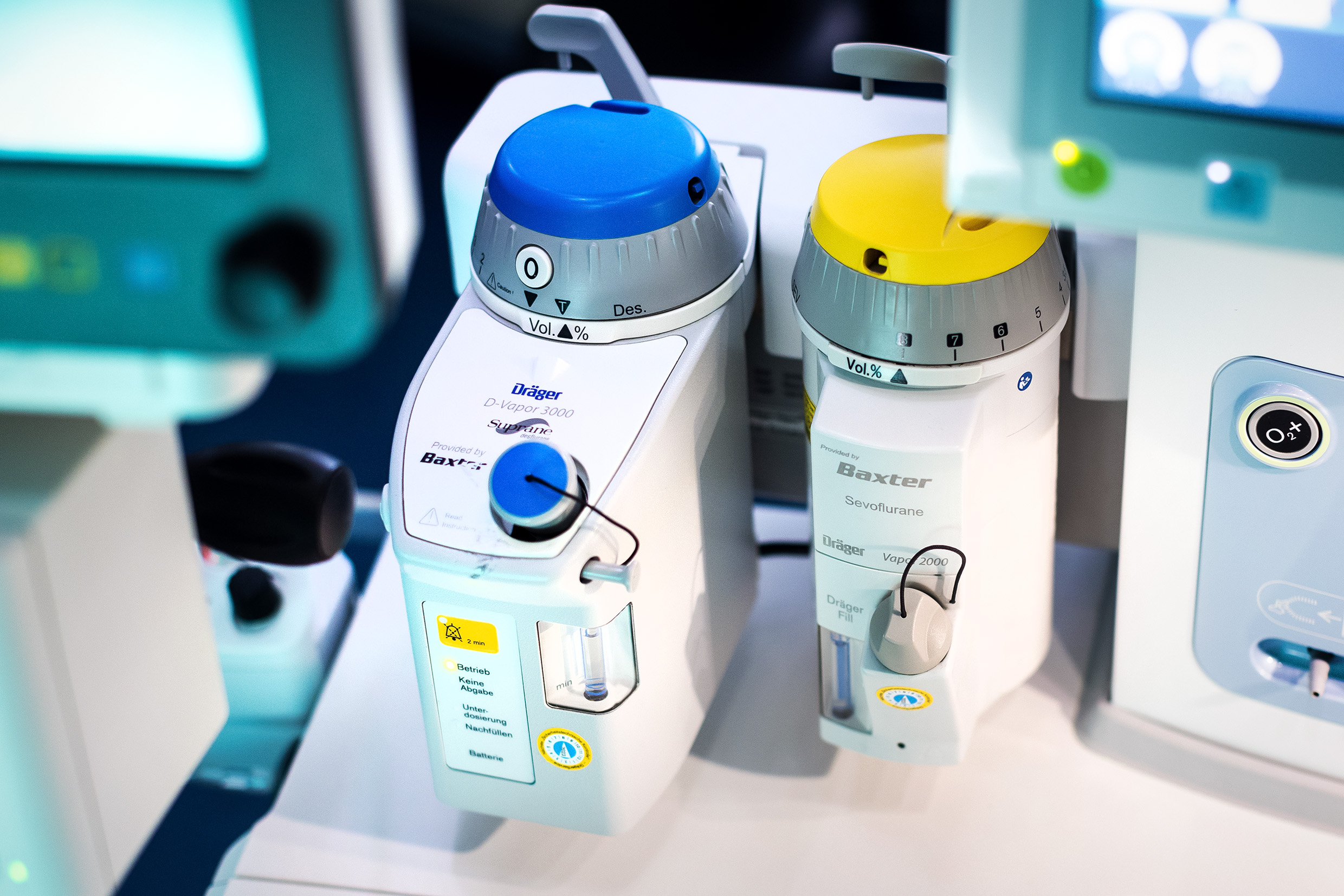

The substance that provides patients with a gentle and safe sleep during anesthesia causes up to 35 percent of all hospital emissions: this is the current reality of anesthetic gas.
(Published: July 2023)
Until now, the exhaled gases have been collected from the anesthesia machine and released into the outside air. Anesthetic gases thus promote the greenhouse effect and are among the worst climate killers worldwide. At Fresenius Helios’ 19 hospitals in the eastern region, a new filter system is now being used to recycle these gases. More than 90 percent of the anesthetic gases collected will thus be recycled in the future.
With a consumption of more than 1,200,000 ml of inhalation anesthetics at the 19 clinics in the Helios Region East alone, recycling will save a CO2 equivalent of more than 1,100 tons per year in the future. This is comparable to driving almost five million kilometers in a mid-range gasoline-powered car: more than twelve times from the earth to the moon or 120 times around the equator.
Activated carbon filters are used, which are attached to the anesthesia machine in the operating room or to the ventilator in the intensive care unit – exactly where the exhaust hose for the anesthetic gas is otherwise attached. The gases are captured in these filters and most of them are recycled before they are used again for anesthesia – in line with sustainable recycling management principles. But the filter system not only pays off for the environment. It also reduces costs by eliminating the need for maintenance of the anesthetic gas extraction system. In addition, significant electricity savings can be achieved.

After the trial in the 19 hospitals in the eastern region, Helios will decide whether to implement the project in the other regions in Germany. If all Helios hospitals were to use the new filter system, a CO2 equivalent of around 5,200 tons could be saved in the future. This is equivalent to driving 22,700,000 kilometers with a mid-range gasoline engine. Or put another way, that's 59 times the distance from the earth to the moon.
In addition, Helios has decided to stop using nitrous oxide, which is particularly harmful to the environment. In addition, the emission of the remaining anesthetic gases is reduced as much as possible by intelligently reducing the gas supply to the anesthesia device. For example, the use of desflurane, another very climate-damaging gas, has already been reduced by 40 percent.
According to estimates by the German Society for Anesthesiology and Intensive Care Medicine, 17 million anesthesia procedures are performed in German hospitals each year. Added to this are many thousands more anesthesia procedures in the outpatient sector. Each anesthetic emits up to 118 kilograms of CO2 equivalents.
At Fresenius, we believe we have a responsibility to protect the environment and are striving for climate neutrality by 2040 as part of #FutureFresenius. That’s why we continually implement measures that help reduce our emissions.
Contact
Helios Kliniken GmbH
Friedrichstr. 136
10117 Berlin
Deutschland
T +49 30 521 321-0

